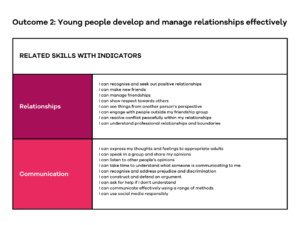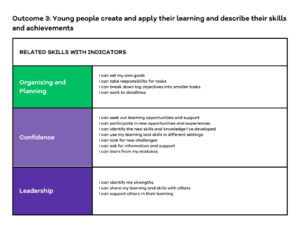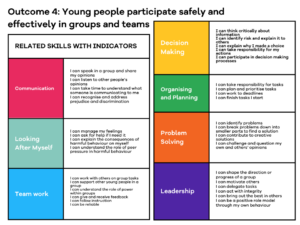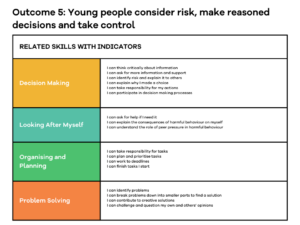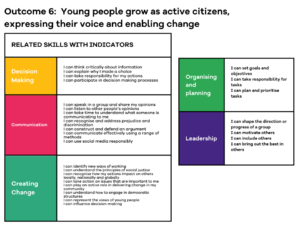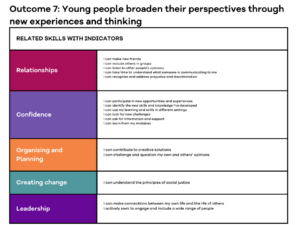YouthLink Scotland has worked hand-in-hand with the youth work sector to develop a clear, impactful model to allow youth workers to develop and track key skills with the young people they work with.
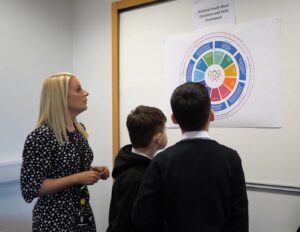
Over a number of years, the youth work sector has worked collaboratively to clearly articulate the contribution of youth work in Scotland. The youth work outcomes and the youth work skills framework proved to be valuable tools in planning and evaluating the work we do, and most importantly in providing a structure for reflective learning conversations with young people on their youth work journey.
During 2022, YouthLink Scotland worked with the youth work sector to integrate these established tools into a single framework, aiming to make it more straightforward for youth workers to make clear connections between outcomes and skills – and for young people to identify and review meaningful learning goals.
The Youth Work Outcomes and Skills Framework can be used in a range of youth work contexts and practices. Importantly, it does not set out to record every aspect of the change that youth work can make, but to describe the most significant changes that young people commonly describe as a result of their involvement in youth work.
You can view and download a full version of the Outcome and Skills here. A simple text version is available here.
The example below shows how outcomes, skills and indicators connect:
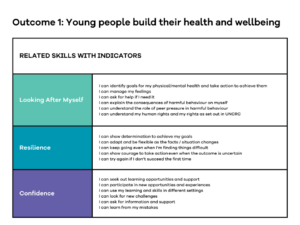
The seven youth work outcomes describe the key overarching impacts of youth work:
Outcome 1: Young people build their health and wellbeing
Outcome 2: Young people develop and manage relationships effectively
Outcome 3: Young people create and apply their learning and describe their skills and achievements
Outcome 4: Young people participate safely and effectively in groups and teams
Outcome 5: Young people consider risk, make reasoned decisions and take control
Outcome 6: Young people grow as active citizens, expressing their voice and enabling change
Outcome 7: Young people broaden their perspectives through new experiences and thinking
The eleven youth work skills describe key building blocks that enable young people to make progress towards these outcomes. The indicators associated with the development of these skills describe observable behaviours that help us set goals and measure progress with young people.
We’ve included 11 key skills that youth work develops in partnership with young people, such as confidence, resilience, leadership and problem solving. Explore each of the skills in more detail on our Youth Work Skills page.

The examples below demonstrate how outcomes, skills and associated indicators can be integrated to support evaluation, but they are not intended to be prescriptive. Youth workers will adapt and edit indicators to reflect context, programme objectives and individual needs. Many programmes may focus on just one or two youth work outcomes. And when it comes to the ‘right’ skills and indicators to focus on, youth workers, youth work partners and young people should work together to agree which of these it would be most beneficial to work on and measure progress against.
Over time, we’ll be providing more resources and case examples to support local conversations about how best to use the framework in your local context.

